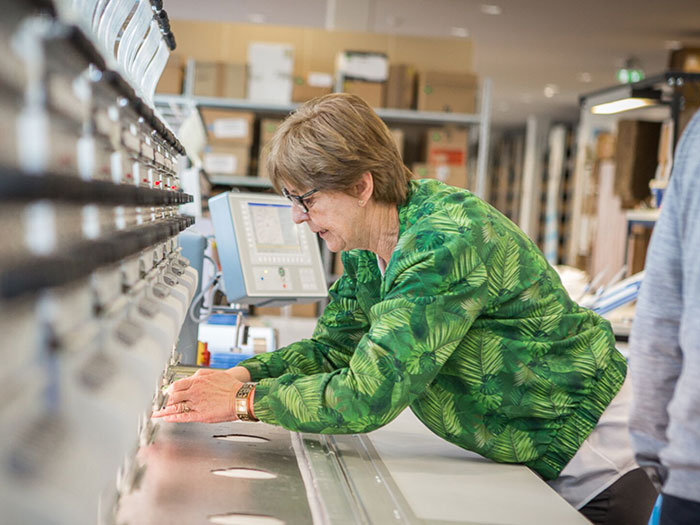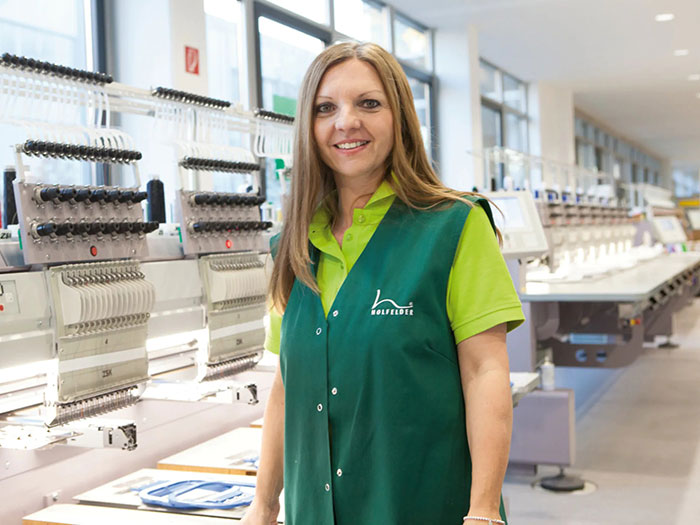A sustainability rating to certify the suppliers’ commitment
For the Volkswagen Group sustainability also passes through its suppliers, who must meet all its standards. The concept applies to all the companies the Group works with, regardless of their size or what they supply. Here’s how Audi works with its partners.
An increasing numbers of companies require their suppliers to prove that they are operating sustainably. That’s why Audi introduced its sustainability rating in 2017. The rating, also known as the S-Rating, has been mandatory throughout the Volkswagen Group since July 1, 2019. It has considerable influence on procurement and applies even to smaller partner companies.
S-Rating: a sustainability rating

A self-assessment questionnaire standardised for the automotive industry gives Audi information about the sustainability of suppliers’ operations with regard to social and environmental aspects. In 2019 a total of 12,646 suppliers have provided the Volkswagen Group with information.
If the responses are not satisfactory, an independent sustainability assessor visits the company to carry out an inspection relating to areas such as industrial safety and the efficient use of resources in production. Assessors were deployed on behalf of the Group 1,331 times in 2019, followed by further checks to ascertain whether the deficiencies identified are actually being rectified.
At the end of an S-Rating process, a supplier is assigned a status of either “can be awarded a contract” or “cannot be awarded a contract.” There are no grey areas. In other words, price is not the only decisive factor in awarding contracts.
Ethics and respect for the environment

Audi sets high standards as a company for issues such as corporate ethics, sustainability, and environmental protection, and expects the same of its suppliers. If they are to work together as partners, the two sides need to share the same values and ambitions. Preventing corruption and creating a safe and healthy working environment are just two examples of social sustainability.
Other equally important examples include making responsible use of natural resources such as water and preventing waste. Companies need to draw up official guidelines on these subjects, make them integral parts of their corporate procedures and communicate them to their employees so that they are put into practice every day.
“Sustainability Talks”
A sustainability self-declaration calls for specific guidelines and management systems that govern the corporate practices of Audi’s business partners. As a means of ensuring that this does not end up smothering processes with red tape, Audi has now started to offer “Sustainability Talks” for companies employing between 50 and 500 people.
These involve workshops in which external specialists demonstrate best practices that will help participants to draw up neat and effective sustainability guidelines.
Small businesses, big results

Holfelder GmbH, a Bavarian company that manufactures jackets worn by Audi employees and a number of items for the Audi collection, shows that even small firms can achieve big things when it comes to sustainability.
The company is working on a sustainability strategy of its own, as well as on ethics and environmental guidelines. Since August 1, 2019, Holfelder has been a member of the BSCI (Business Social Compliance Initiative). This initiative seeks to achieve better working conditions primarily in textile factories in Asia, as well as in Europe. The SME is also thinking about its use of chemicals, in order to obtain GOTS (Global Organic Textile Standard) certification.
This will help Holfelder to continue to improve its S-Rating results and become ever more sustainable.
United Nations standards
For companies like Audi, it is important that everyone pulls together to help make the supply chain consistently sustainable. That applies to all types of business, no matter how big or small.
The Sustainable Development Goals of the United Nations describe 17 global goals for sustainable development. In implementing its sustainability rating, the company is contributing to goals defined as numbers 8 (Decent Work and Economic Growth), 12 (Responsible Consumption and Production) and 16 (Peace, Justice and Strong Institutions).
Fonte: AUDI AG
